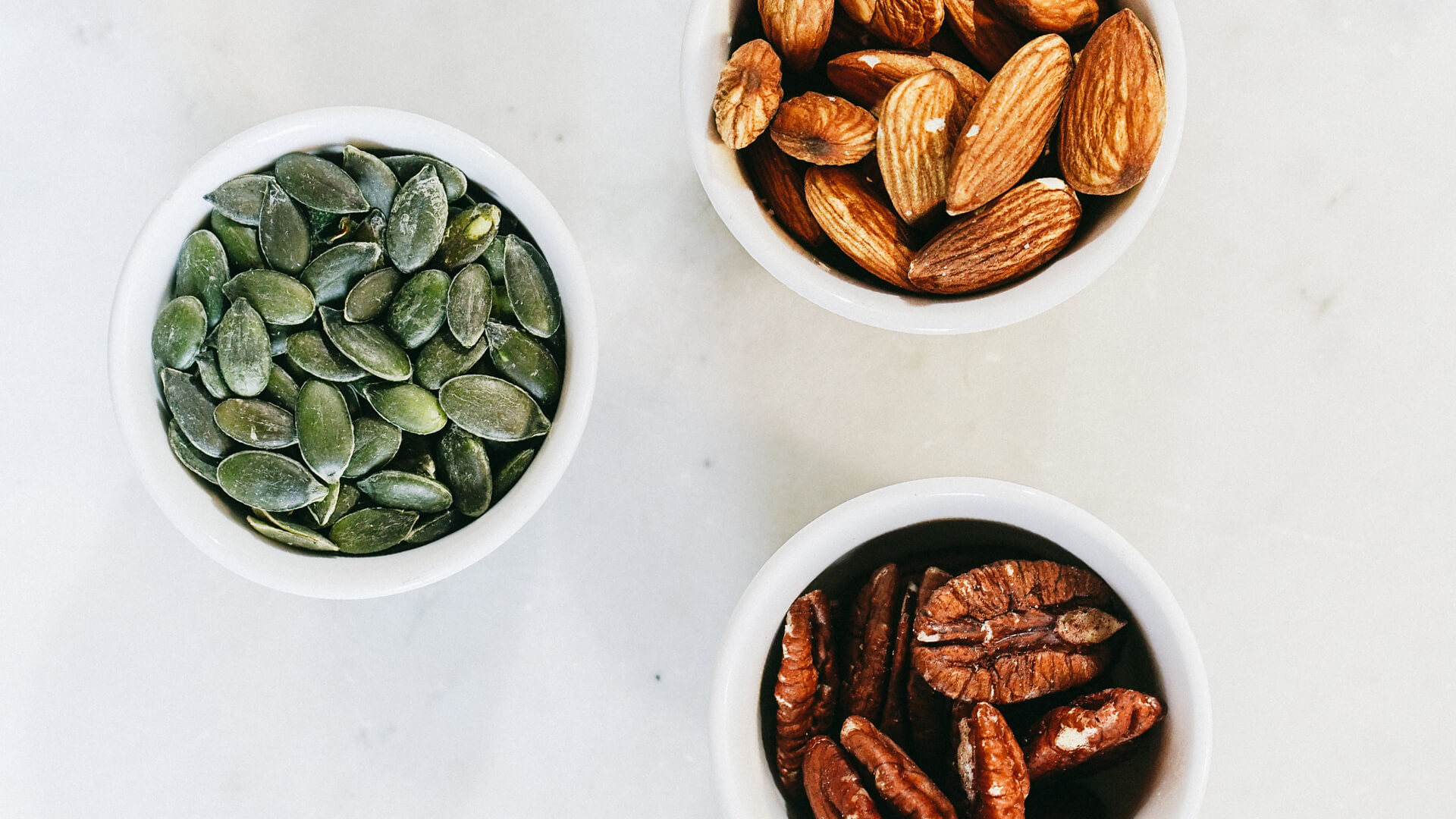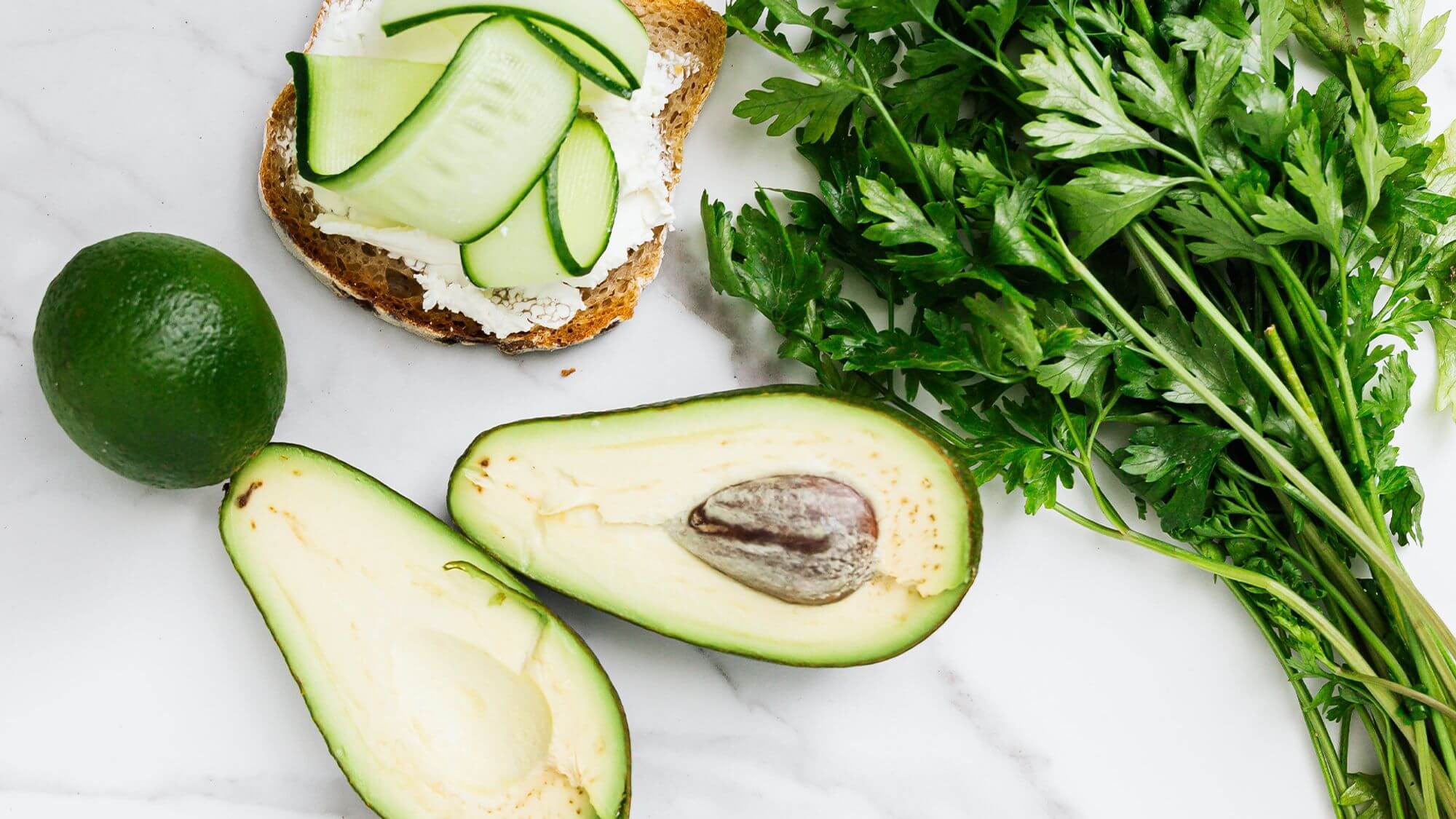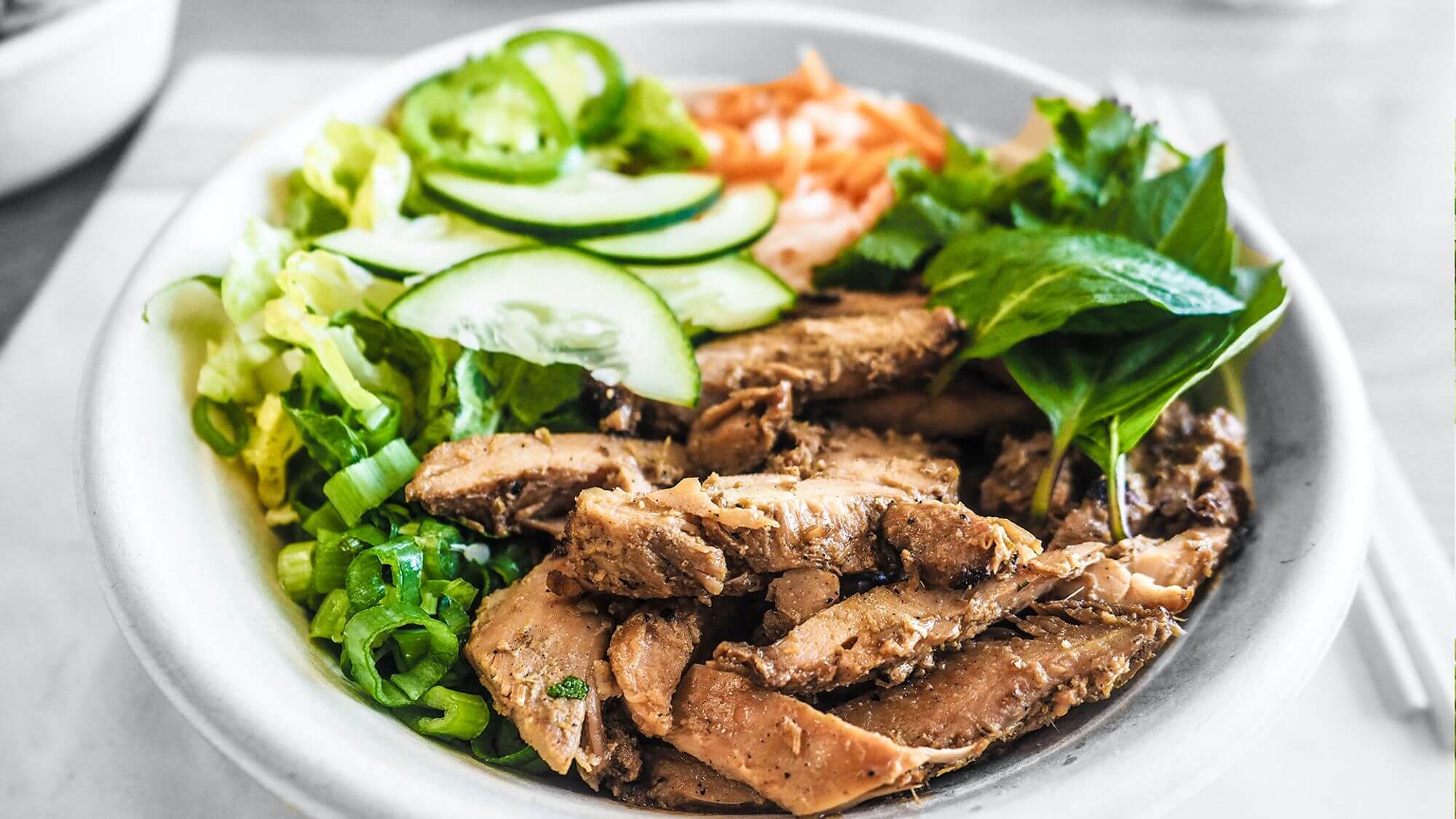They say that abs are made in the kitchen—and they're absolutely right. The food you choose after a workout can make or break your post-workout recovery and has the power to rebuild muscle and keep you feeling strong for your next session.
During workouts, muscle fibres break down and need the right nutrients to rebuild stronger. Studies show that consuming 20 grams of protein immediately post-workout enhances muscle repair, while carbohydrates restore glycogen levels to replenish and re-boost energy.
The best food for muscle recovery after exercise includes lean proteins, healthy fats, and essential micronutrients that help reduce soreness and speed up recovery. Below are the top post-workout foods, their benefits, and easy ways to include them in your meals.
How Food Supports Muscle Recovery
The food you eat after a workout plays a vital role in repairing muscles, replenishing energy stores, and reducing inflammation. Here’s how key nutrients contribute to faster recovery and better performance:
Protein Synthesis and Muscle Repair
Exercise causes tiny tears in muscle fibres that trigger the body to repair and rebuild stronger muscle tissue. Protein provides the amino acids needed for muscle protein synthesis (the process that helps repair damage and stimulate growth).
Consuming 20-40 grams of high-quality protein after a workout can enhance recovery, prevent muscle breakdown, and support lean muscle development.
Carbohydrates and Glycogen Replenishment
Carbohydrates are the body’s primary energy source and are stored in muscles as glycogen. After a workout, glycogen stores are depleted and need to be replenished to restore energy and prevent fatigue. Eating fast-digesting carbs like fruit, rice, or whole grains after exercise helps refuel muscles, speed up recovery, and reduce soreness.
Healthy Fats and Inflammation Reduction
Omega-3 fatty acids found in foods like salmon, walnuts, and chia seeds may help reduce post-exercise inflammation and support muscle repair. Restoring fats post-exercise is vital as fats help keep red blood cells healthy and transport oxygen throughout the body.
Hydration and Micronutrients
Proper hydration is essential for nutrient transport, muscle function, and flushing out toxins. Reducing the risk of cramps, electrolytes such as sodium, potassium, chloride, and magnesium help regulate fluid balance in your body and keep muscles functioning properly.
They may be micro, but micronutrients play a big role when it comes to muscle growth. Directly affecting muscle recovery and maintenance, micronutrients such as vitamin D, iron, and magnesium could even reduce your risk of injury.

Frive’s Taiwanese Chilli Chicken packs in 63g of protein per meal!
12 Best Foods for Muscle Recovery
Post-workout nutrition is key to building strength and recovering faster. Some foods repair muscle fibres, others replenish energy, and a few even help ease soreness. Give your muscles a helping hand and help your body bounce back stronger than ever with the following foods:
1. Lean Proteins
Lean protein sources like chicken, turkey, and lean cuts of beef are essential for muscle repair and growth, providing all the essential amino acids needed for muscle protein synthesis (MPS). For example, a three-ounce serving of cooked chicken breast has around 26 grams of protein, making it one of the most effective foods for weight loss and muscle gain and recovery.
Besides being packed with nutrients, lean proteins are incredibly versatile—grill, bake, or stir-fry them to suit your meal plan and taste preferences. Pair them with complex carbs like brown rice or quinoa to maximise muscle recovery and replenish glycogen stores.
2. Fatty Fish
Salmon, tuna, sardines, and mackerel are rich in protein and loaded with omega-3 fatty acids, which help reduce inflammation and muscle soreness after intense workouts. Consuming EPA and DHA, the active ingredients in omega-3, has been shown to support muscle protein synthesis and improve joint health.
A 100g portion of salmon contains 22-25g of protein along with essential vitamins like B12, potassium, and selenium, which help regulate muscle contractions and replenish lost electrolytes. Enjoy it grilled, baked, or tossed in a fresh post-workout salad.
3. Eggs
Eggs are a source of complete protein, meaning they contain all nine essential amino acids as well as healthy fats and key vitamins like A, D, and B12. With six grams of protein per egg, they’re an easy and effective way to support muscle repair after a workout.
Both the egg white and yolk play a role— the white is rich in protein, while the yolk, which also contains protein, provides healthy fats, iron, zinc, and selenium to support muscle function and boost immunity.
Scramble them, boil them, or if you don’t like the taste of eggs, add them to a protein-rich smoothie for a quick recovery meal.
4. Dairy and Dairy Alternatives
Milk, Greek yoghurt, and cottage cheese are excellent sources of casein and whey protein, which help with muscle repair and growth. Cottage cheese packs 14 grams of protein per half cup, while Greek yoghurt offers nearly double the protein of regular yoghurt, making both excellent choices for post-workout recovery.
If you prefer non-dairy alternatives, opt for fortified almond, soy, or oat milk, which provide protein and essential nutrients without the dairy. Enjoy them as a snack, in smoothies, or topped with fresh fruit.
5. Nuts and Seeds
Nuts and seeds like almonds, walnuts, chia seeds, and flaxseeds are great sources of healthy fats, plant-based protein, and essential minerals like magnesium, which helps reduce muscle cramps and soreness.
Chia and flax seeds are high in omega-3 fatty acids, which help calm post-workout inflammation, while almonds and walnuts provide vitamin E, which may contribute to muscle repair and recovery.
Enjoy them as a quick snack, blended into smoothies, or sprinkled over yoghurt or oatmeal for an easy post-workout boost.
6. Whole Grains
Whole grains are rich in complex carbohydratescomplex carbohydrates, which help replenish glycogen stores after exercise. Unlike refined carbs, like white bread and pasta, whole grains like brown rice, quinoa, oats, and whole-grain bread provide slow-releasing energy, keeping you fuelled for your next pilates workout or gym session.
Pair them with a protein source, like peanut butter on whole-grain toast, to create a balanced post-workout meal that helps prevent muscle breakdown and supports faster recovery.

Frive’s Naked Chicken Burrito Bowl packed full with 39g of protein!
7. Legumes and Beans
Beans, lentils, and chickpeas offer a plant-based alternative to animal protein. A half-cup serving of cooked beans provides about seven grams of protein, along with iron, zinc, and fibre, which support muscle repair and immune function.
A slow-digesting carbohydrate, legumes help replenish glycogen stores and provide steady, sustained energy, giving muscles the power they need to recover efficiently after a workout.
Toss them into salads, soups, or grain bowls, or blend chickpeas into a creamy hummus for a nutrient-dense recovery snack.
8. Leafy Greens
Dark leafy greens like spinach, kale, bok choy, and Swiss chard are rich in antioxidants, vitamins, and minerals that help reduce muscle soreness and aid recovery.
Leafy greens are packed with iron to support oxygen delivery to muscles, while magnesium and calcium help with muscle function and bone strength.
Adding a handful of leafy greens to smoothies, salads, or post-workout omelettes is a quick and easy way to boost nutrient intake and support muscle repair.
9. Berries
A sweet and refreshing post-gym snack, blueberries, strawberries, raspberries, and blackberries are rich in antioxidants that help combat oxidative stress and inflammation caused by intense exercise.
Protecting against exercise-induced muscle damage, blueberries have one of the highest antioxidant levels of all fruits and vegetables, helping to fight inflammation.
Enjoy them in smoothies or mix them with Greek yoghurt and a mix of seeds and nuts sprinkled on top for an energising and healthy snack.
10. Bananas
One of nature’s perfect post-workout snacks, bananas are high in potassium, an essential electrolyte that helps prevent muscle cramps and support hydration. Containing fast-digesting carbs, bananas help restore depleted glycogen levels and quickly recharge your energy after a workout.
Easy to grab on the go, bananas pair well with nut butter for a balanced recovery snack or can be blended into a protein smoothie for an extra nutrient boost.
11. Sweet Potatoes
Sweet potatoes are a nutrient-dense carb, perfect for restoring glycogen stores and keeping energy levels steady after a particularly intense weight-lifting session.
High in potassium, sweet potatoes support muscle function and hydration, while their vitamin C helps tissue repair and prevent age-related muscle breakdown.
Beyond their nutritional benefits, sweet potatoes are incredibly versatile—bake them as a side dish, mash them into a post-workout meal, or roast them with olive oil, garlic, and spices.
12. Dark Chocolate
Don't feel guilty the next time you reach out for a tempting square of dark chocolate. Rich in antioxidants and magnesium, dark chocolate does more than satisfy a craving—it helps soothe inflammation, keeps muscle cramps at bay, and contains polyphenols, which have been found to effectively reduce muscle soreness in .
For the best results, opt for dark chocolate with at least 70% cacao, and enjoy it as a post-workout snack, mixed into a smoothie, or paired with nuts for an extra boost of protein.
Foods to Avoid After a Workout
Not everything on your plate will help with recovery—some foods can slow down muscle repair, spike inflammation, or even leave you feeling more sluggish instead of replenished. Here are a few things best avoided after exercise:
- - Sugary snacks and refined carbs like pastries, muffins, and cookies may seem like a quick energy fix, but they come at a cost, causing blood sugar spikes and crashes that leave you feeling tired rather than energised.
- - Fried and fatty foods take longer to digest and can cause bloating or discomfort when your body is trying to recover.
- - Ultra-processed protein bars or shakes with a long list of artificial ingredients may not offer the same quality protein as whole foods, making them a less effective recovery choice.
- - Alcohol interferes with protein synthesis and hydration, slowing down muscle repair by inhibiting the production of hormones that are used to help, like testosterone, making it harder for your body to bounce back.
- - Consuming caffeine right after exercising can increase the stress hormone cortisol, while excessive caffeine consumption, in general, can dehydrate the body and disrupt sleep.

Frive’s String Vegetable Spaghetti & Meatballs containing 42 grams of protein
Meal Ideas for Muscle Recovery
Now that you know what powers muscle recovery and what to skip, it’s time to put it all together. The right meals will rebuild muscle, restore energy, and keep soreness in check—and they don’t have to be boring either.
Breakfast
- - Protein pancakes with banana: Made with eggs, protein powder, oats, and banana, these pancakes provide muscle-building protein and energy-restoring carbs. Serve with Greek yoghurt for extra protein.
- - Scrambled eggs with spinach and avocado on whole-grain toast: This combination of lean protein, healthy fats, and complex carbs supports muscle recovery.
Lunch
- - Grilled chicken and quinoa bowl: A high-protein meal with lean chicken, fibre-rich quinoa, roasted sweet potatoes, and leafy greens for muscle repair and replenishment.
- - Tuna Nicoise salad: A light but protein-packed option with tuna, hard-boiled eggs, green beans, olives, and a lemon-olive oil dressing.
Dinner
- - Salmon with roasted sweet potatoes and broccoli: Fatty fish provides omega-3s to reduce inflammation, sweet potatoes restore glycogen, and broccoli offers essential micronutrients.
- - Turkey meatballs with brown rice and spinach: Lean turkey is high in protein, brown rice helps replenish energy, and spinach provides iron for oxygen transport to muscles.
Snacks
- - Greek yoghurt with berries and flax seeds: This protein-rich snack contains plenty of antioxidants and omega-3s for muscle recovery.
- - Apple slices with almond butter: Simple but effective, this mix of healthy fats, protein, and carbs provides sustained energy for muscle repair.
- - Hard-boiled eggs and mixed nuts: A quick on-the-go snack loaded with protein and essential minerals like zinc and magnesium.
Protein Shakes and Smoothies
- - Banana and blueberry protein smoothie: Blend whey or plant-based protein powder with banana, blueberries, almond milk, and flaxseeds for a nutrient-dense recovery shake.
- - Chocolate protein shake with oats and almond butter: A carb-protein combo that helps repair muscles and replenish energy after an intense session.
Short on time or not the biggest fan of cooking? Check out Frive’s nutritionist-approved meal plans for an even simpler and more convenient way to kick-start your recovery. Our chef-prepared meals deliver all the protein and nutrients your muscles need for optimal growth and repair straight to your door.
What Food Is Best for Muscle Recovery?
Strong muscles start (and are maintained) in the kitchen. Protein-rich foods like chicken, eggs, and fish are some of the best foods for fast muscle recovery, providing muscles the building blocks they need to repair and grow, while carbohydrates and healthy fats replenish energy stores and calm post-workout inflammation.
Explore Frive's meal plans for a fuss-free way to power your recovery and train even harder. Designed with muscle repair and peak fitness performance in mind, our high-protein, chef-prepared meals contain nutrients that work behind the scenes to support recovery and take the effort out of eating right so you can focus on getting stronger.
FAQs
What Foods Are Good for Muscle Strain?
Foods that help with muscle strain include those rich in anti-inflammatory compounds, protein, and electrolytes. Fatty fish like salmon provide omega-3s to reduce inflammation, while tart cherry juice and watermelon contain antioxidants that ease muscle soreness.



